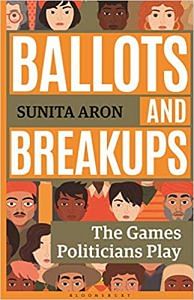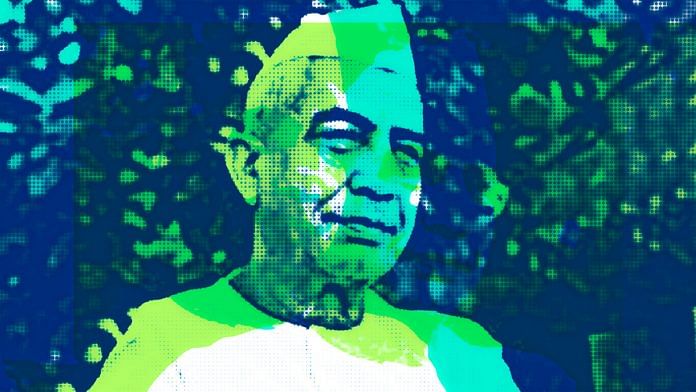The Janata Party was built by a disparate group of anti-Congress leaders who rode to power purely on an anti-Indira wave in the country, following the imposition of a draconian internal emergency in the country. But the adhesive was too weak to keep together the motley group of veteran leaders who were both ambitious and egoistic.
It was on the basis of a letter of support given by Indira to Charan Singh that the latter could get an invite from the president and become the prime minister.
Charan Singh was administered the oath of office and secrecy on 28 July 1979, and the Lok Sabha met on 20 August 1979.
AG Noorani writes in his article, ‘Appointing a PM’, ‘When the then President Sanjiva Reddy found that Charan Singh’s list showed a majority of 24, he wrote to Charan Singh on 26 July 1979, inviting him to form a government on these novel terms: “I trust that in accordance with the highest democratic traditions and in the interest of establishing healthy conventions, you would seek a vote of confidence in the Lok Sabha at the earliest possible opportunity, say by the third week of August 1979.” The word “establishing” made clear his decision to set a precedent.’
Also read: Farmer leader Charan Singh’s manifestos never promised easy solutions like loan waivers
No support is unconditional, and especially not when the relations are tense and tenuous. Even Charan Singh would have known that Indira would not make him a prime minister without her own motives. Katherine [Frank] writes,‘The crunch came when Indira made her continued support to him conditional on Charan Singh withdrawing the Special Courts Act—the legislation enacted by Desai in order to try Indira of “Emergency crimes”. Singh refused to bury the Special Courts Act whereupon Indira withdrew Congress I support for Charan Singh’s unstable embryonic government.’
Why did the Congress withdraw support a night before the trust vote? The party must have extended support to save the country from the expense of another election, but the hidden agenda was clearly personal.
The country’s tallest Jat leader instantly became a controversial figure.While very few hailed him as a man of principles, the majority labelled him as a political opportunist who even took support from Indira Gandhi. Singh had publicly spurned her for acts of omission and commission. But that’s what coalition politics is all about. Friends become foes and foes turn friends when deals are struck in the sheer lust for power.And the change of emotions is instant with no baggage of animosity in the past!
I contacted Agra-based KS Rana, a close associate of Charan Singh, while writing this book. Rana recounted his discussion with Charan Singh after he had relinquished the post. Rana said, ‘It was 1984. Charan Singh had come to Agra to attend a wedding, which was also attended by veteran politicians like Jagjivan Ram, Hemvati Nandan Bahuguna and Fiji Lt Governor Bhagwan Singh. He was staying in suite number one of the Circuit House and was returning to Delhi the next day by train.The DM came to him with a telegram requesting him to travel by car with full security as he was facing threat from Jarnail Singh Bhindranwale after his forceful speech in the parliament in which he had warned Indira Gandhi saying,“There is no threat to our life from him but to you.”’
Also read: With gathbandhan politics in turmoil, is the ‘vote transfer’ theory a myth?
Bhindranwale, camping inside the Golden Temple, was demanding a Sikh state and Indira had launched Operation Bluestar primarily to remove him from the sacred temple.
According to Rana, after much persuasion, Charan Singh had agreed to travel by Rana’s ambassador car, directing him to reach the Circuit House at five in the morning next day.
‘When we reached the Circuit House in the morning, Charan Singh was taking a stroll in the garden with his security guard, Babu Ram Yadav in tow. He had his usual breakfast that included milk with Bournvita. As we reached the Haryana border, we urged him to wait for the escort car that was left behind. He reluctantly agreed to have tea at a restaurant and this is when I asked him the sensitive question on the fall of his government.’
After much goading, he agreed to speak on the issue and this is what he told Rana.
‘Indira Gandhi had given unconditional support to my government but speculations were rife about Raj Narain’s secret meeting with Sanjay Gandhi at an industrialist’s house in which he had promised to get the cases withdrawn. This was weighing heavily on my mind though both Kamlapati Tripathi, the working president of the Congress, along with CM Stephen, had clarified the support was unconditional as Indira wanted to get rid of the Morarji Desai government. However, they advised me to telephone her once to express my gratitude.’
Also read: Nehru-Gandhi family nostalgia is just not enough to win elections in India anymore
Charan Singh told Rana that as Indira was the former prime minister and Nehru’s daughter, he decided to make a courtesy call on her as well as Morarji Desai. Accordingly, appointments were fixed for 8:30 am and 9 am the next morning.
Singh said he was aghast upon being informed that Desai had flown to Ahmedabad without meeting him. He told Rana, ‘I drove down to Indira’s place, reached her bungalow but returned from the gate without meeting her as I thought it would send a wrong message and validate the rumour about the deal. I heard my inner voice and decided to return without meeting her. Obviously she was angry,’ Charan Singh had told Rana.
Rana has also written a book on Charan Singh detailing the Kisan leader’s political journey. He opines in the biography on how Singh could have continued as PM and later manipulated enough numbers to drop the Congress crutches.
Rana writes, ‘Only if he had made a courtesy call on Indira Gandhi before the trial of strength on the floor of the house, his government would have continued for six months, during which he could have easily snapped ties with the Congress without jeopardizing his government.’
According to Rana’s calculations that he shared with me in an interview, the government would have survived on the support of the Left and the Janata Party rebels. But Singh was a man of principles who pursued straight politics in which manipulations had no space. Despite persuasions by senior Congress and Lok Dal leaders he refused to have any talks with Indira before the trust vote as he thought it would be deemed as compromise with one’s principles and complete surrender before the Congress.
After the withdrawal of support by the Congress, Charan Singh did not face the trust vote and instead advised the dissolution of the house that also kicked off another controversy. The president accepted his advice and dissolved the Lok Sabha, which according to constitutional expert AG Noorani, was in violation of the fundamental rule since a prime minister facing a motion of no confidence had no right to advise the dissolution of the house. He opined that Singh should have suffered defeat in the house, thereafter which the president could have explored the formation of another government.
Contrary to Rana’s contention that the loss of power never upset the Jat leader, the media, whom Charan Singh considered to be unfriendly, wrote articles on how he went into political hibernation and accused him of opportunism.That he wanted to be the country’s prime minister was not hidden from anyone.
In an interview with veteran journalist Prabhu Chawala for India Today, Charan Singh was reticent yet candid in his replies to Indira’s pressure on him to withdraw the Special Courts Act.
Also read: How Indira Gandhi gifted Indian Democracy a new generation of political talent by jailing it
Prabhu Chawla wrote,‘There is a tangible air of bitterness around him these days.The bitterness of a dream gone awry, an opportunity lost, a lifelong ambition briefly fulfilled and then rudely snatched away before he could taste its fruits. Charan Singh, 78, is in the winter of his tortured political career—a career that earned him the sobriquet of “King of Defectors”. In fact, Charan Singh’s personal niche in India’s political history is forever tainted by his image as a wrecker of governments and parties, a destructive urge that was only matched by his driving obsession to occupy the prime minister’s chair.’
Charan Singh did not mince words when answering a question on sacrificing his principles for achieving his life’s ambition to become the prime minister. He told Prabhu Chawla,‘It is capitalist propaganda. I struck no deal for becoming or continuing as prime minister.They wanted me to withdraw the notification regarding the trial of Sanjay Gandhi’s case under the Special Courts Act. I preferred to resign rather than withdraw the notification.’10
The invitation for him from the Rashtrapati Bhawan were followed by slogans, ‘Charan Singh laya aisi aandhi, desh ki neta Indira Gandhi’ (Charan Singh heralds a new wave with national leader Indira Gandhi). How hollow the words sounded!
Whether it was opportunism or politics of principles, Charan Singh became the country’s first prime minister who did not face the parliament. Hopefully, this will not happen again as the voters have grown intelligent and started delivering clear mandates.
 This excerpt from Ballots and Breakups: The Games Politicians Play by Sunita Aron has been published with permission from Bloomsbury India.
This excerpt from Ballots and Breakups: The Games Politicians Play by Sunita Aron has been published with permission from Bloomsbury India.




Right from the first govt, selfish interest overtaken national interests. Ego driven political leaders with proper agenda decide on future course of country. The first fresh breath of air happened when PVN became PM, one of the best period ushering necessary changes defining India’s growth path. Next was Vajpayee, taking it new regime and enhancing growth track faster. Manmohan Singh era as PM started of very well, but midway landed in absolute policy paralysis, corruption and totallyremote operated. Modi’s first term was very effective, however not without any problem. However, with a thumping majority, great expectations are set for 2nd term. Hope with the clean up drive and more power in in Rajya Sabha soon, the govt may do a better job. Golden opportunity. Let us hope for the best.